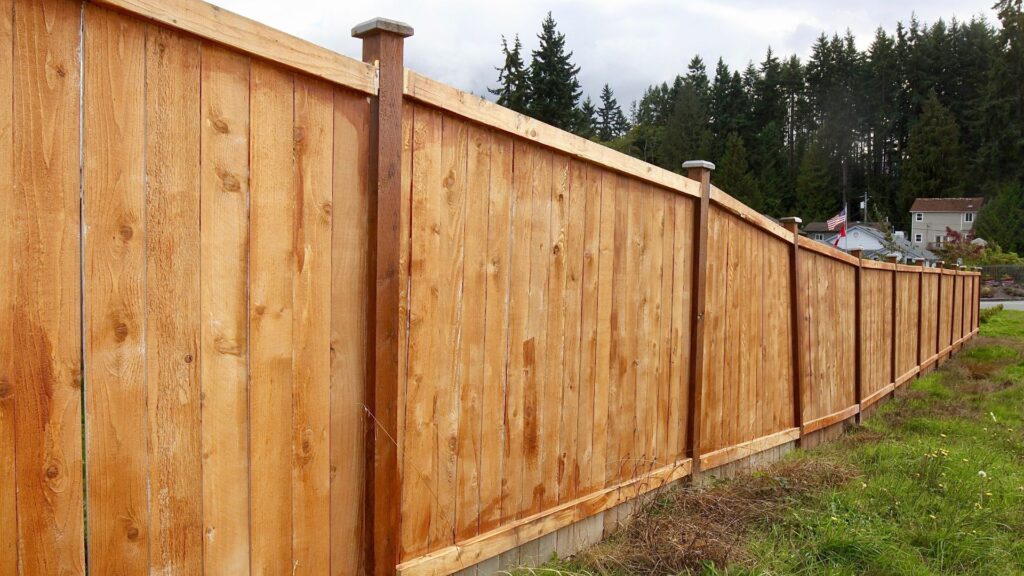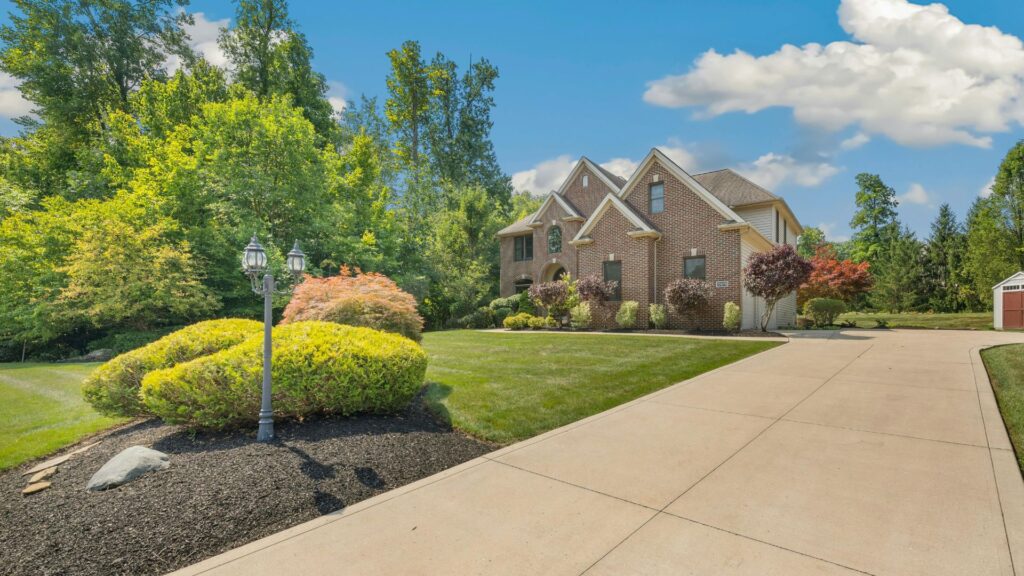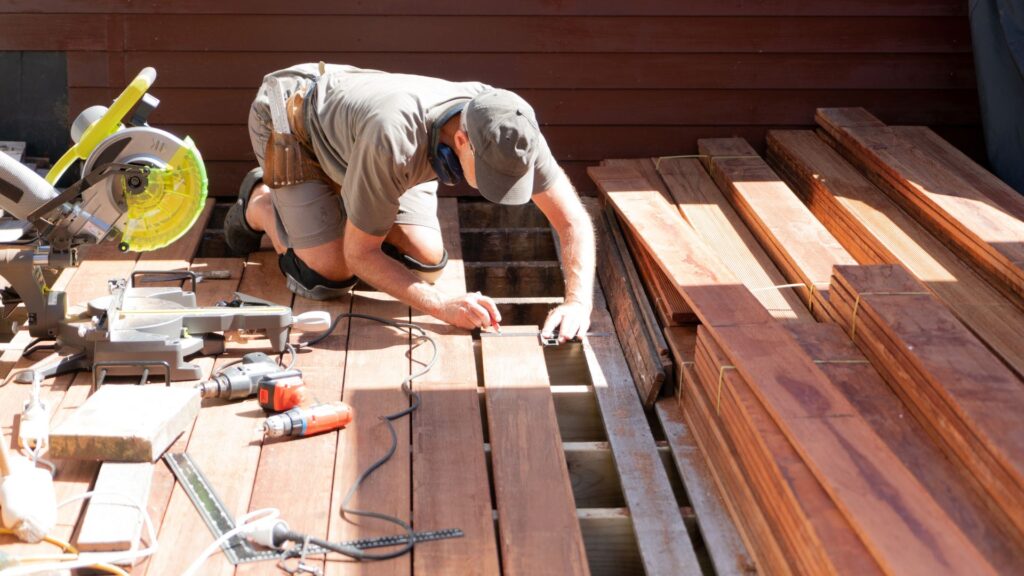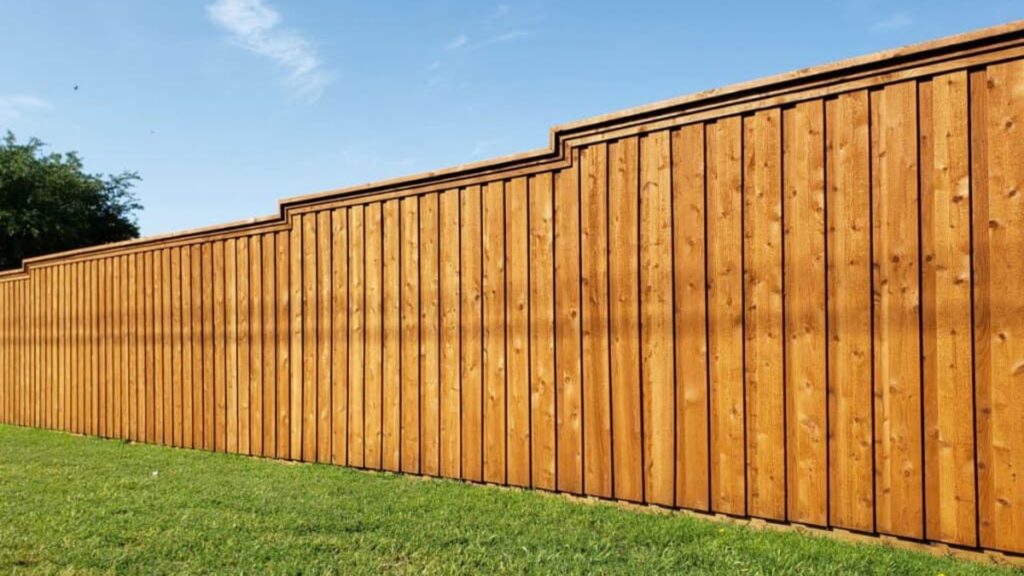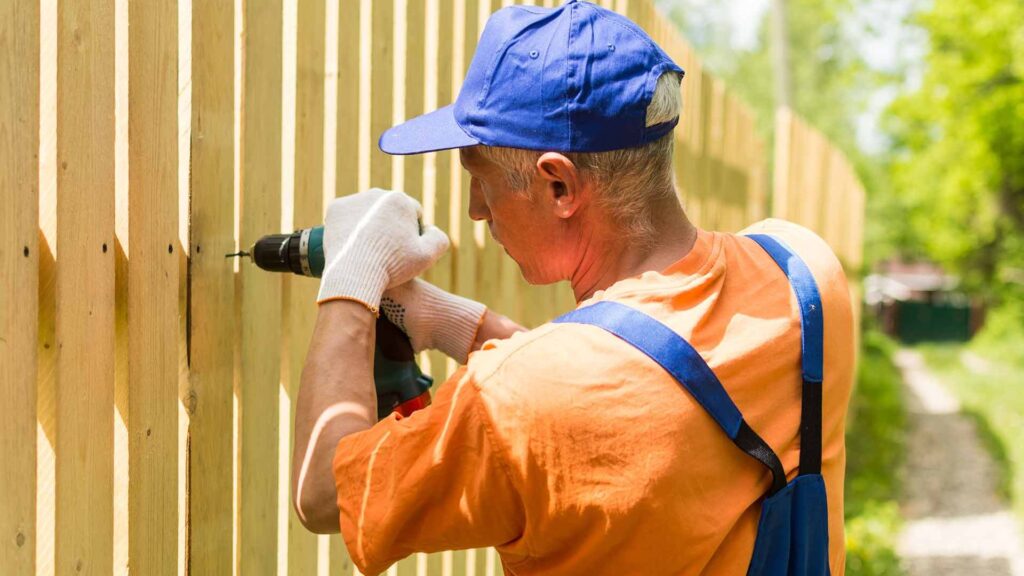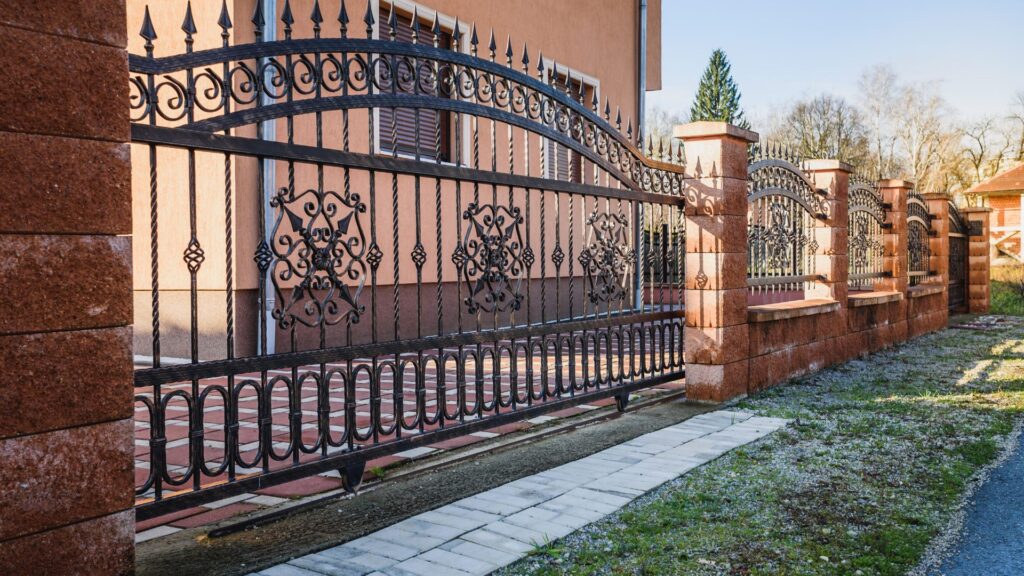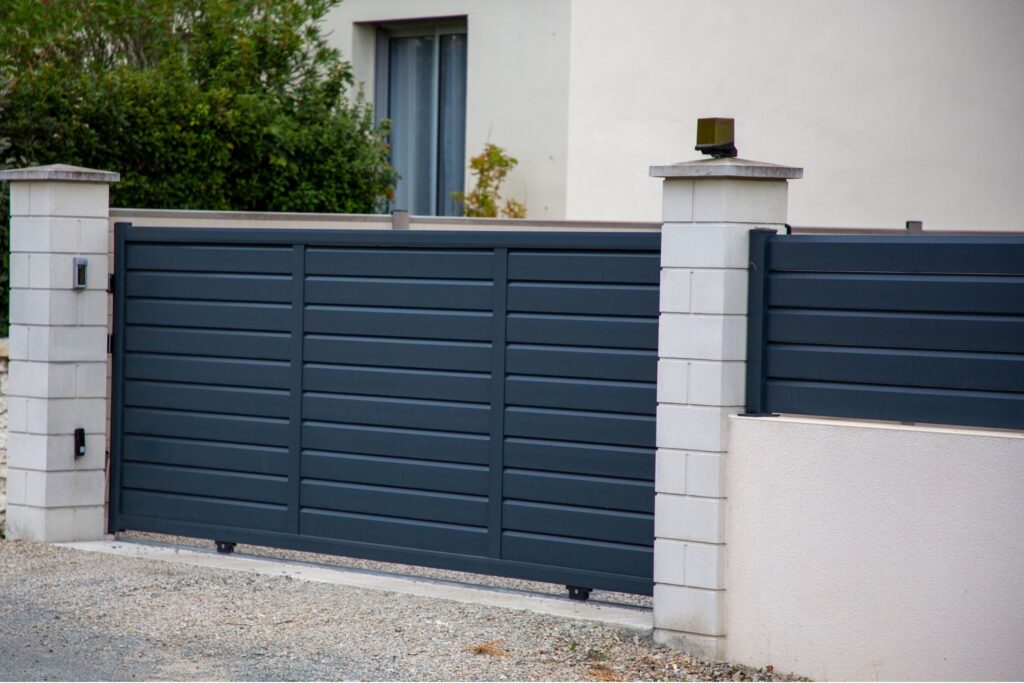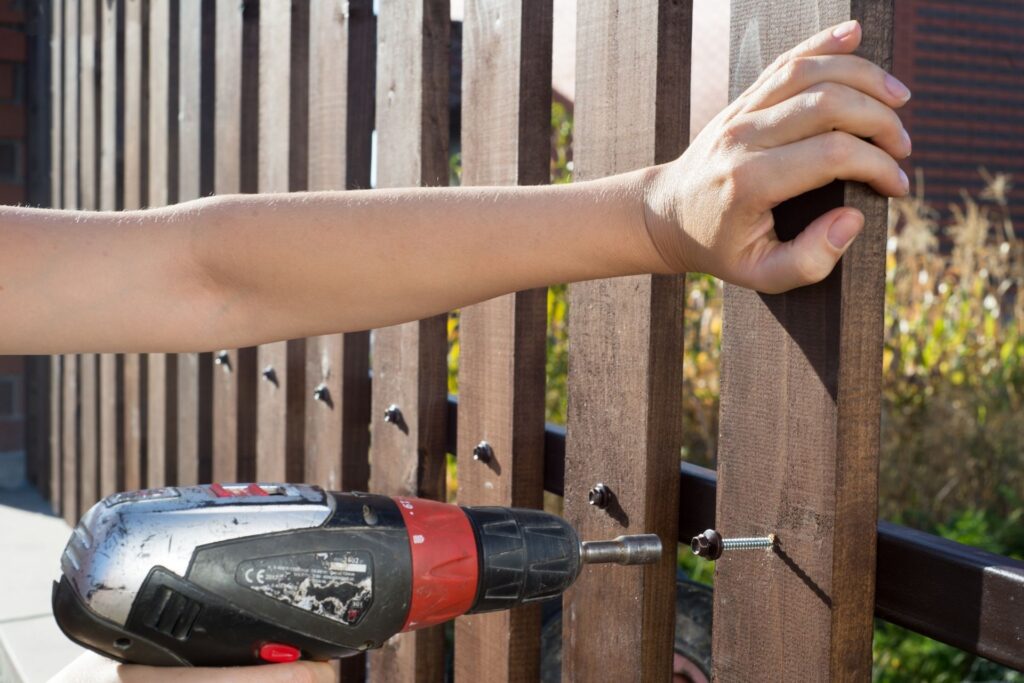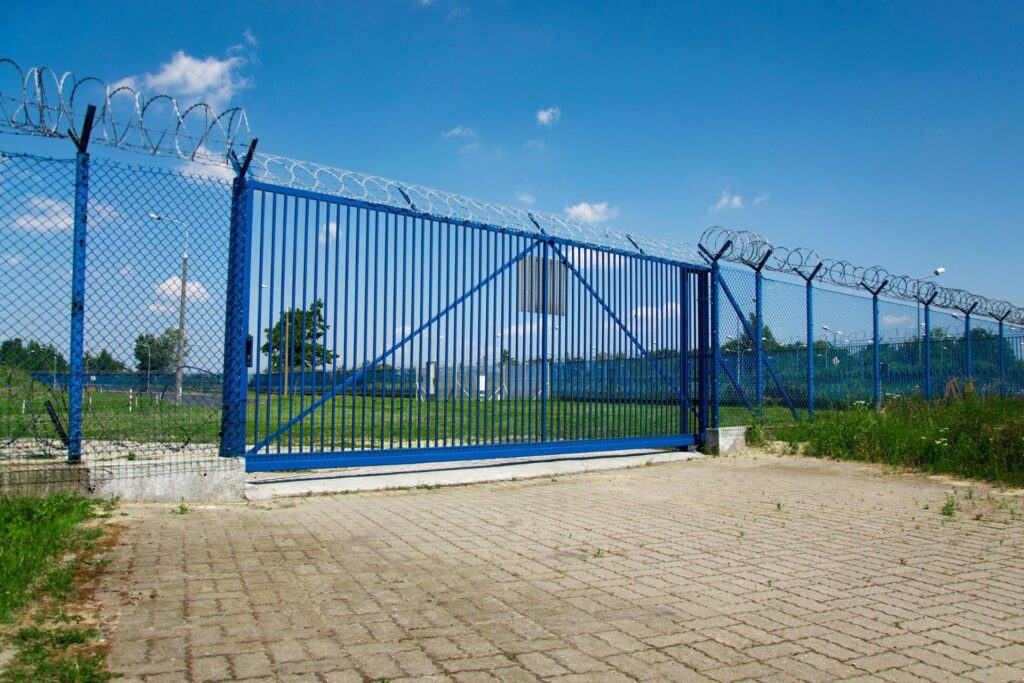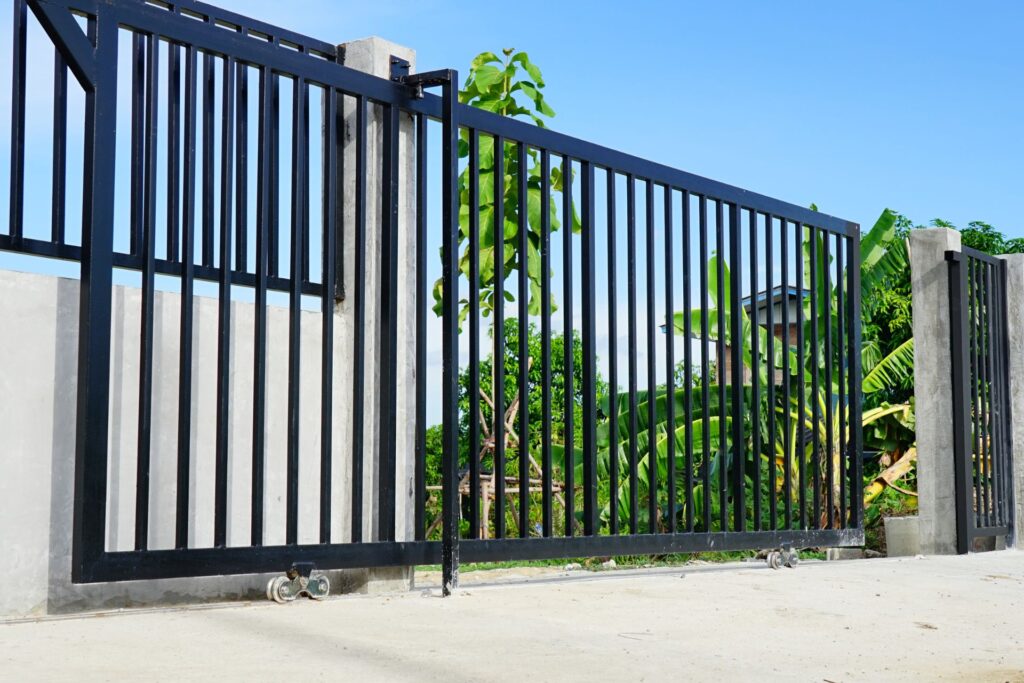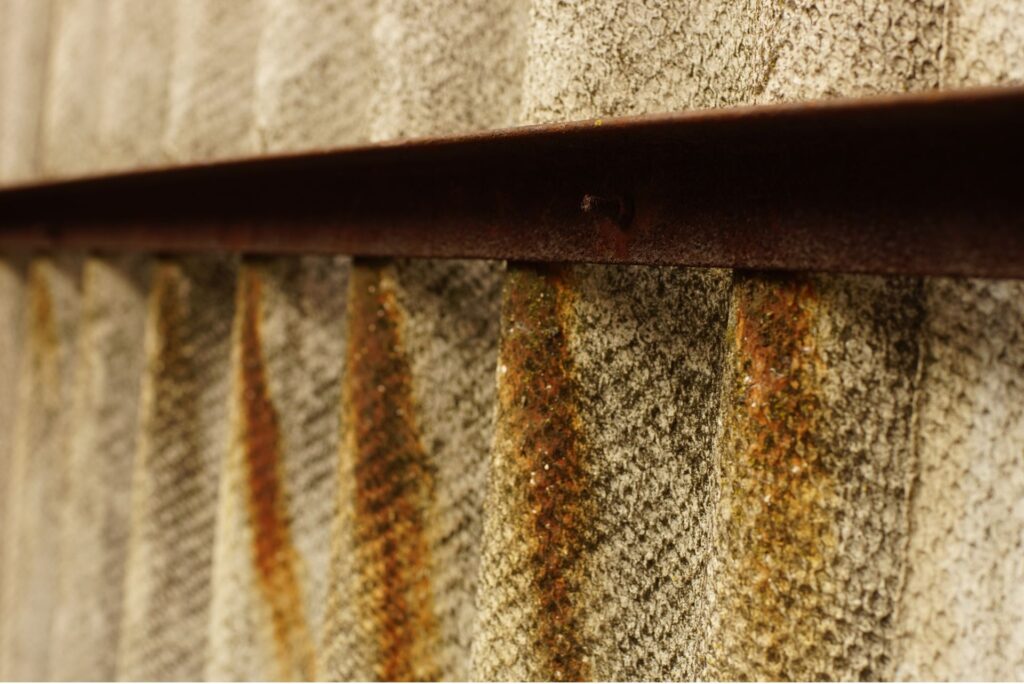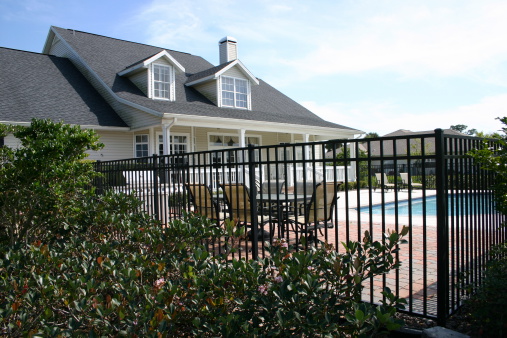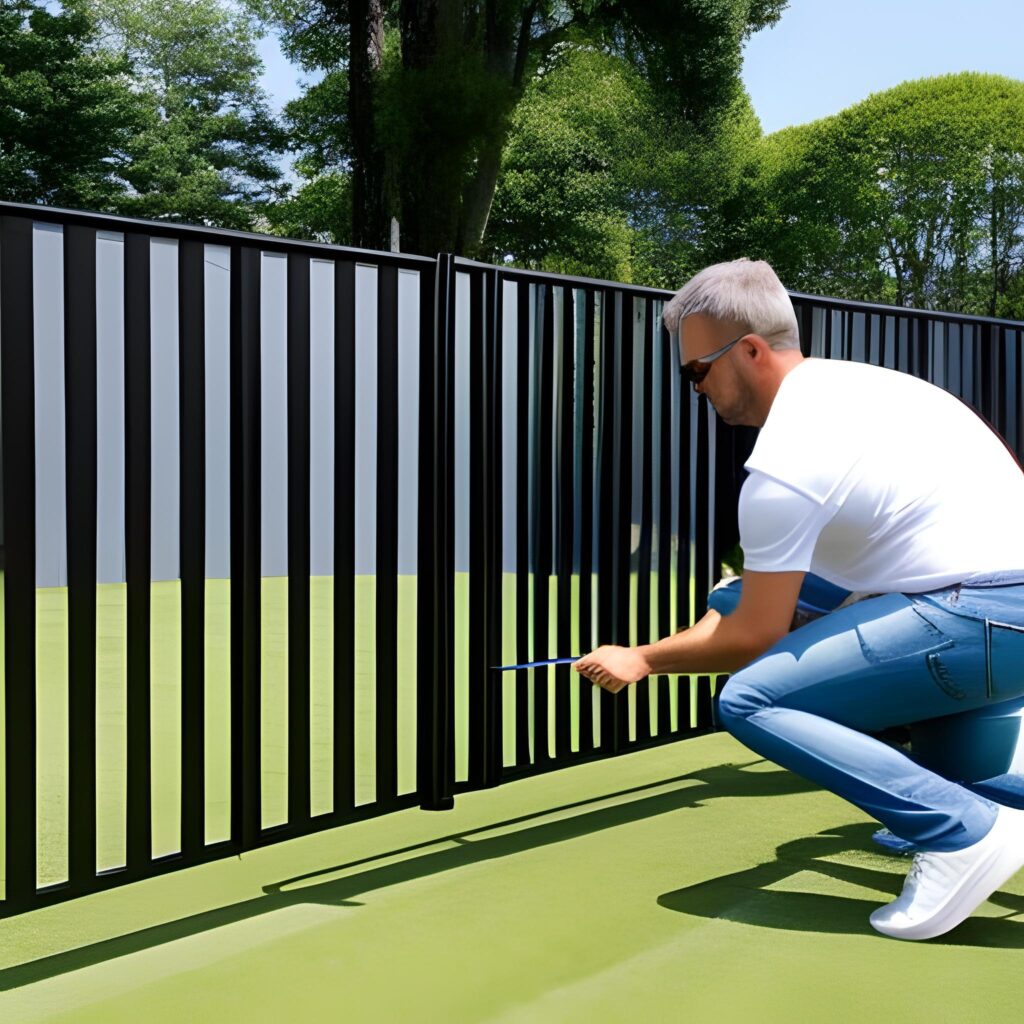Welcome to your ultimate guide on understanding the lifespan of composite fences! If you’re considering installing a fence or already have one, you might be wondering just how long these durable, low-maintenance fences can last. Composite fencing has gained popularity due to its eco-friendliness, resilience, and ability to mimic the appearance of wood without the need for constant upkeep. In this blog post, we’ll dive into the factors that affect the longevity of composite fences, compare them to other fencing materials, and offer practical tips to ensure your fence stands the test of time. Let’s explore how long you can expect your composite fence to last and why it’s a worthy investment for your home.
Composite fences typically last between 25 to 30 years or more, depending on the quality of materials, installation, and maintenance. These fences are designed to withstand harsh weather, resist rot, and require minimal upkeep, making them a long-lasting and cost-effective option compared to wood or vinyl. Regular cleaning and proper care can further extend their lifespan, ensuring durability and lasting beauty for decades.
Table of Contents
What Are Composite Fences?
Composite fences are a modern fencing solution made from a blend of wood fibers and recycled plastics. This unique combination results in a durable and eco-friendly alternative to traditional wood or vinyl fences. Designed to mimic the look and feel of natural wood, composite fences offer the added benefit of requiring less upkeep and having a longer lifespan, making them an increasingly popular choice for homeowners.
Key Characteristics of Composite Fencing:
- Material Composition: Composite fences are created using a mixture of wood fibers and plastic, often sourced from recycled materials. This blend allows composite fences to capture the natural beauty of wood while offering the longevity and resistance of plastic. Unlike wood, composite materials do not rot, warp, or crack easily, and they withstand the elements much better over time.
- Durability Compared to Wood and Vinyl: Traditional wood fences are prone to weather damage, insect infestations, and require regular maintenance like staining or sealing. Over time, wood fences can splinter and decay, leading to higher maintenance costs and a shorter lifespan. Vinyl fences, while low-maintenance, can become brittle and crack due to extreme temperatures, which limits their longevity. In contrast, composite fencing offers superior durability. It resists moisture, insects, and the wear and tear of seasonal weather changes without the need for frequent maintenance. This makes it a great long-term investment for those looking for a fence that stays in great condition for years.
- Sustainability Factor: Composite fences are also an environmentally conscious choice. By using recycled materials, they reduce the demand for new wood and plastic, making them a more sustainable option than traditional fencing materials. This eco-friendly aspect is one of the key reasons many people are turning to composite fencing, especially those who prioritize reducing their environmental footprint.
Why Choose Composite Fencing?
1. Durability: One of the biggest reasons homeowners choose composite fencing is for its long-lasting nature. It can endure harsh weather conditions like rain, snow, and intense sunlight without deteriorating or losing its appearance. Unlike wood, which requires constant care to prevent decay, composite fences offer hassle-free longevity.
2. Aesthetic Appeal: Composite fences are designed to replicate the look of natural wood. This gives your property a high-end, sophisticated appearance without the constant upkeep associated with traditional wooden fences. Available in a wide range of colors and styles, composite fencing can be customized to suit any home aesthetic.
3. Low Maintenance: Another major advantage of composite fencing is the minimal maintenance required. With traditional wood fencing, homeowners must invest time and money in staining, painting, or sealing to keep it looking fresh. Composite fences, on the other hand, only require occasional cleaning to maintain their appearance. This is particularly appealing for busy homeowners who want an attractive, low-maintenance fence solution.
In summary, composite fences offer the perfect combination of durability, sustainability, and visual appeal. They provide an eco-friendly alternative to traditional materials while offering better resistance to the elements and a longer lifespan. With their low-maintenance requirements and customizable design options, composite fences are a smart investment for anyone looking to enhance their property with a reliable and stylish fencing solution.
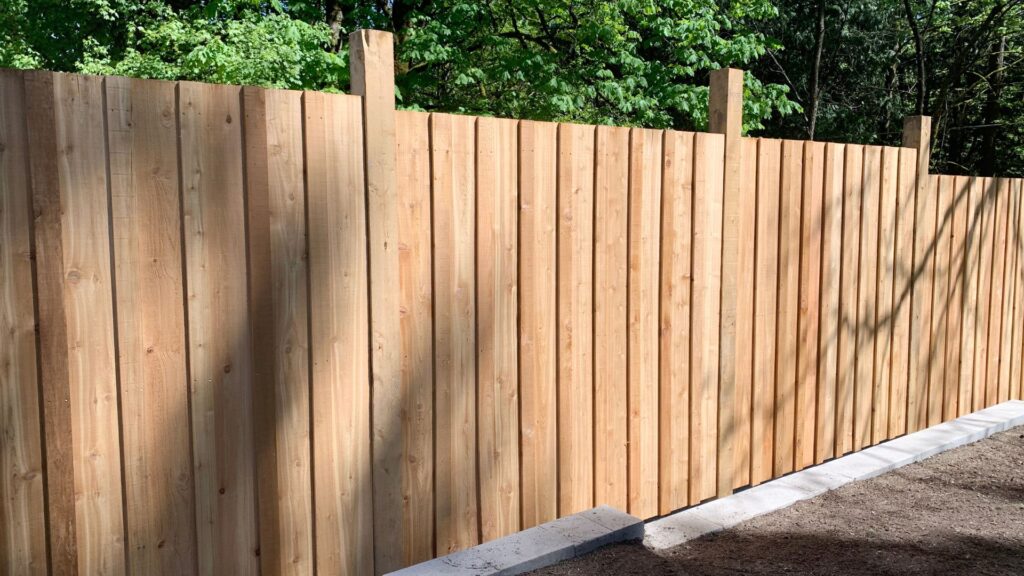
The Average Lifespan Of Composite Fences
When it comes to choosing the best material for your fence, the lifespan is a crucial factor. Homeowners want a fence that will stand the test of time while requiring minimal maintenance. Composite fences have become increasingly popular due to their durability and low upkeep. But how long can you really expect a composite fence to last? Let’s break it down.
General Lifespan of Composite Fences
Composite fences, made from a blend of wood fibers and plastic, are designed to withstand the elements far better than traditional wood fencing. On average, you can expect a composite fence to last 25 to 30 years or more. This makes them one of the most durable fencing options available today.
When comparing composite fencing to other materials, it stands out in terms of longevity:
- Wood fences typically last 10 to 15 years, and that’s only if they are regularly treated and maintained. Without proper care, wood fences can deteriorate much more quickly due to rot, insects, and weather damage.
- Vinyl fences, another popular choice, usually last 20 to 30 years. However, they are prone to cracking in extreme temperatures, which can reduce their lifespan in certain climates.
Composite fences outperform wood in nearly every category, particularly when it comes to durability. And while vinyl can be comparable, composite fences generally offer more strength and a more natural look, making them an attractive option for homeowners seeking both aesthetics and long-term performance.
Manufacturer Warranties as an Indicator of Longevity
A good way to gauge how long your composite fence will last is by looking at the warranty offered by the manufacturer. Most reputable composite fencing manufacturers offer warranties of 25 years or more, reflecting their confidence in the product’s durability. These warranties often cover things like fading, staining, and structural integrity, which gives homeowners peace of mind that their investment is protected.
In conclusion, composite fences are a smart choice for anyone looking to invest in a long-lasting, low-maintenance fence. With an average lifespan of 25-30 years, they significantly outlast wood and are on par with or even surpass vinyl in durability. Plus, with the backing of a lengthy warranty, homeowners can feel confident that their fence will endure for decades to come.

Factors That Affect The Longevity Of Composite Fences
When investing in a composite fence, one of the key concerns is how long it will last. Several factors can impact the lifespan of composite fencing, ranging from material quality to environmental conditions. Below, we dive deep into the elements that affect the durability of composite fences, ensuring you understand how to maximize the value of your investment.
Quality of the Materials
The quality of materials used in composite fences plays a crucial role in their longevity. Higher-end composite fences are made from premium materials, often using a blend of wood fibers and recycled plastic. This combination creates a strong, durable product that can withstand various environmental pressures over time.
- Cheap Composite Materials: Low-end composite fences may cut costs by using inferior materials or skipping certain manufacturing processes. These fences might look similar initially but tend to degrade faster, becoming more susceptible to cracking, warping, and fading. Over time, cheaper options may require more maintenance or even replacement, negating any upfront savings.
- High-End Composite Options: Premium composite fences use advanced manufacturing processes that tightly bond materials, resulting in a product that resists warping, rotting, and mold. These fences typically have stronger UV inhibitors to reduce fading from the sun. While they cost more upfront, their longevity and minimal maintenance often make them more cost-effective in the long run.
Installation Quality
Even the best materials can’t perform optimally if a composite fence is poorly installed. Proper installation is critical to ensuring the fence’s structural integrity and long-term performance.
- Professional Installation: When done by experts, composite fences are installed with precision, ensuring that each panel is level, properly aligned, and securely fastened. A well-installed fence is less likely to suffer from early damage or misalignment, which can lead to structural weaknesses. Professionals also know how to account for factors like ground movement and post-settling, reducing the risk of warping or sagging.
- DIY or Poor Installation: Improper installation, such as uneven posts or insufficient anchoring, can compromise the fence’s durability. Over time, the fence may lean or develop gaps, making it more vulnerable to environmental wear and tear. For this reason, hiring a professional for installation is highly recommended to maximize the lifespan of the fence.
Environmental Factors
The outdoor environment has a direct impact on the longevity of composite fences. While these fences are designed to be more durable than wood, they are still exposed to the elements and will eventually show signs of wear if exposed to extreme conditions.
- Weather Conditions: Composite fences are built to resist harsh weather, but extreme heat, freezing temperatures, and heavy rain can still take a toll. Over time, severe weather conditions may cause expansion and contraction of the fence material, which can lead to minor cracking or warping.
- UV Rays: While composite materials are typically UV-resistant, long-term exposure to the sun can cause some fading. Higher-end products include advanced UV inhibitors to protect against this, but a fence exposed to constant sunlight for many years will eventually show signs of fading. However, this cosmetic issue usually doesn’t impact the structural integrity.
- Moisture and Humidity: Composite fences are highly resistant to moisture, unlike wood, which can rot or warp. However, continuous exposure to standing water or extremely humid conditions can still affect the fence over time. It’s important to ensure proper drainage around the base of the fence to prevent any long-term water damage.
Maintenance Routine
One of the major benefits of composite fences is that they are low-maintenance, but “low-maintenance” doesn’t mean “no maintenance.” Regular upkeep can significantly extend the life of your fence and keep it looking its best for many years.
- Cleaning: While composite materials don’t need to be stained or painted, they do benefit from occasional cleaning. Dirt, grime, and organic debris like leaves can accumulate on the fence, leading to potential mold growth or stains. A simple wash with soap and water every few months can prevent this buildup and keep your fence in optimal condition.
- Inspections: Periodic inspections are also essential. Checking for loose boards, damaged panels, or other issues can prevent minor problems from becoming major repairs. Tightening screws, fixing misaligned boards, or addressing small cracks early can help maintain the structural integrity of the fence.
Physical Wear and Tear
Composite fences are designed to withstand daily wear and tear, but they aren’t immune to physical damage. Over time, regular use, accidental impacts, and general wear can affect the fence’s appearance and durability.
- General Usage: Families with children or pets may notice increased wear due to frequent contact with the fence. For example, a ball being repeatedly kicked against the fence or pets scratching the surface can cause minor scuffs. These small issues won’t typically compromise the fence’s durability but may affect its appearance over time.
- Accidental Damage: Occasional accidents, such as a lawnmower bumping into the fence or a fallen branch, can cause localized damage. Fortunately, composite fences are fairly easy to repair. In many cases, individual panels or sections can be replaced without needing to overhaul the entire fence, making repairs more manageable and less costly.
In summary, the longevity of a composite fence is influenced by the quality of materials, installation, environmental conditions, maintenance, and the amount of physical wear it experiences. By choosing high-quality materials, opting for professional installation, and maintaining your fence regularly, you can ensure that it lasts for decades while maintaining its beauty and structural integrity.

Comparison With Other Fencing Materials
When deciding on the right fencing material, it’s essential to compare the available options and understand how each performs over time. Below, we’ll break down how composite fencing measures up against other popular materials such as wood, vinyl, and metal.
Wood Fences: A Traditional Choice with High Maintenance
Wood fences have been a staple in residential and commercial fencing for decades due to their natural beauty and affordability. Typically, wood fences last about 10-15 years, but this lifespan is heavily dependent on regular maintenance. This maintenance often includes staining, sealing, and protecting the wood from pests and moisture to prevent rotting or warping. These tasks can become both time-consuming and costly over the years.
In contrast, composite fences are made from a combination of recycled plastic and wood fibers, giving them superior durability. Composite fencing is designed to withstand weather conditions without the need for frequent upkeep. It’s resistant to common wood issues like rot, pests, and warping, which means less maintenance and fewer repair costs in the long run.
While wood fences offer a charming, rustic appeal, composite fences outlast wood fences by a significant margin. With minimal maintenance requirements and long-lasting durability, composite is the more cost-effective and hassle-free choice.
Vinyl Fences: Low Maintenance but Brittle in Cold Climates
Vinyl fences are known for their low-maintenance properties and relatively long lifespan, usually around 20-30 years when properly cared for. Vinyl fencing is resistant to moisture and pests, much like composite, and doesn’t require painting or staining. However, one significant downside of vinyl is that it can become brittle and prone to cracking in colder climates. This brittleness can lead to breaks and damage over time, particularly in regions with harsh winters.
Composite fences, on the other hand, offer a natural wood-like appearance while also delivering comparable durability. Unlike vinyl, composite fencing doesn’t suffer from brittleness in cold weather, maintaining its structural integrity across various climate conditions.
Composite fences provide a similar lifespan to vinyl but with added benefits such as greater durability in cold weather and a more natural, wood-like aesthetic.
Metal Fences: Long-Lasting but Prone to Rust
Metal fences, such as those made from aluminum or steel, are renowned for their strength and can last for over 30 years with proper care. Metal fences require regular treatments to prevent rust and other forms of corrosion, especially in areas with high moisture or salt in the air. Additionally, metal fences are susceptible to dents and may require repairs after significant impact, making them less ideal in high-traffic areas or places where frequent wear and tear is a concern.
Composite fences offer a similarly long lifespan, without the risk of rust or dents. The material’s resilience against weather and physical damage means less maintenance and fewer repairs over time. Composite fencing provides the longevity of metal while avoiding the upkeep associated with rust prevention.
Composite fencing rivals metal in terms of lifespan but offers a distinct advantage by being rust-resistant and more impact-resistant, providing a durable, long-lasting option without the need for frequent maintenance.
In summary, composite fencing emerges as a superior alternative across the board when compared to wood, vinyl, and metal fences. Its durability, low-maintenance requirements, and resistance to environmental factors make it a smart investment for long-term fencing solutions. Whether you’re concerned about weather-related wear and tear, aesthetics, or maintenance costs, composite fencing stands out as a versatile and reliable choice.

Maintenance Tips To Maximize The Life Of Your Composite Fence
A composite fence is an excellent investment for any homeowner. It’s durable, low-maintenance, and built to withstand harsh weather conditions. However, like any outdoor structure, it still needs some care to ensure it lasts as long as possible. Here are some essential maintenance tips to keep your composite fence in top shape for years to come.
Regular Cleaning
Regular cleaning is crucial for maintaining the appearance and longevity of your composite fence. Over time, dirt, grime, and even mold or mildew can accumulate on the surface. To prevent these elements from damaging the fence or diminishing its appearance, clean it twice a year—once in the spring and again in the fall.
- How to Clean: Use a mild soap and water solution or a composite deck cleaner specifically designed for such materials. Simply scrub the fence gently with a soft brush or cloth, and rinse it thoroughly with water. Avoid using harsh chemicals, as they can erode the surface and shorten the lifespan of the fence.
- Why It Matters: Cleaning removes dirt buildup that could potentially harm the composite material over time, while also preventing mold or mildew growth that could stain or weaken the fence.
Regular cleaning with soap and water is usually enough to keep your composite fence looking fresh and free from dirt buildup. For more detailed maintenance tips, check out Pacific Outdoor Shades’ guide on fence care. Simple cleaning practices can ensure your composite fence stays in top shape for decades.
Inspect for Damage
Composite fences are designed to be highly durable, but they aren’t entirely immune to wear and tear. Regularly inspecting your fence for damage ensures you can catch any issues early before they turn into more significant problems.
- What to Look For: Check for loose boards, cracks, or any signs of wear, such as fading or warping. Pay attention to the hardware like nails or screws, making sure they are still secure and in place.
- Repair Tips: If you notice any loose boards or cracks, fix them immediately to prevent further damage. Loose boards can be secured with additional screws, while small cracks can sometimes be repaired with a composite filler. Taking action early on helps avoid costly repairs down the road.
Avoid Direct Ground Contact
One of the key factors in extending the life of your composite fence is preventing direct contact with the ground. Composite fences are moisture-resistant, but prolonged exposure to damp soil or standing water can still cause waterlogging, leading to damage over time.
- How to Elevate the Fence: Ensure that the bottom of the fence is elevated slightly off the ground, which allows for proper drainage and ventilation. This reduces the risk of moisture damage, which can lead to rotting or warping over time.
- Why This Is Important: Allowing your fence to breathe by keeping it off the ground helps prevent water absorption, which can cause the material to weaken or deteriorate. This small adjustment can significantly extend the lifespan of your composite fence.
Mind Your Landscaping
Your landscaping choices can directly impact the health of your composite fence. Overgrown plants, shrubs, and trees can trap moisture against the fence, leading to mold, mildew, or even rot if left unchecked.
- What to Do: Trim any nearby plants, shrubs, or trees regularly to prevent them from encroaching on the fence. Make sure there’s enough space between your greenery and the fence to allow for air circulation, which will help keep the area dry and mold-free.
- Benefits: Maintaining proper landscaping not only enhances the aesthetic appeal of your yard but also protects your composite fence from excessive moisture and potential mold growth, both of which can compromise its structural integrity.
By following these simple but effective maintenance tips, you can keep your composite fence looking great and performing well for many years. Regular cleaning, inspection, and thoughtful landscaping practices go a long way in preventing unnecessary wear and tear. Taking the time to care for your composite fence will ensure that it continues to provide beauty, privacy, and durability to your outdoor space for the long haul.
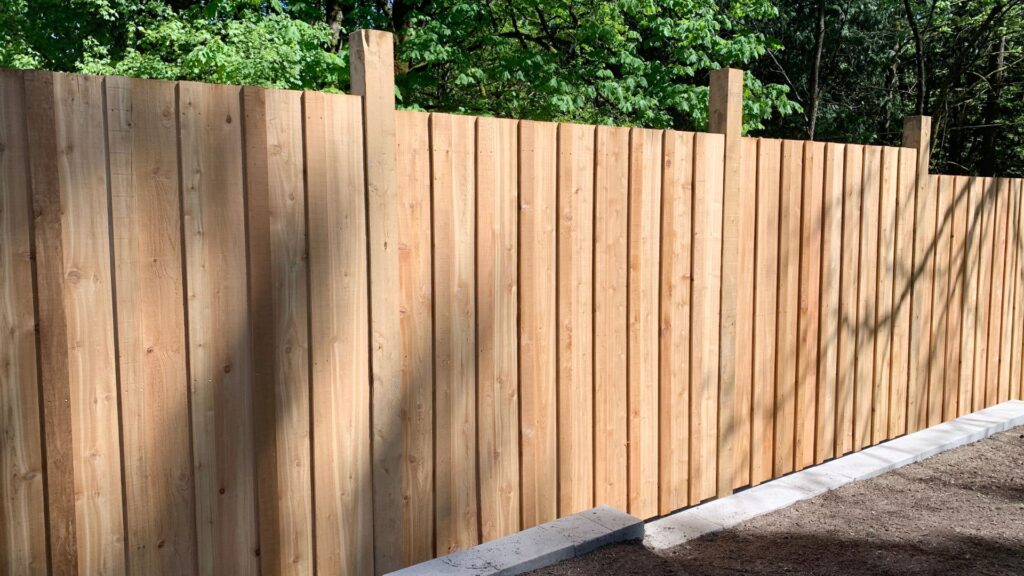
Pros And Cons Of Composite Fences For Long-Term Use
When considering fencing options for your home or property, composite fences stand out as a durable and eco-friendly alternative to traditional wood or vinyl fences. Understanding the advantages and disadvantages of composite fences is essential in making an informed decision. Here, we’ll dive deep into the pros and cons of composite fences to help you evaluate whether they are the right fit for your long-term needs.
The Advantages of Composite Fences
Composite fencing has gained popularity in recent years due to its resilience and minimal upkeep requirements. Below are the key benefits:
1. Longevity: One of the most significant advantages of composite fencing is its impressive lifespan. Unlike traditional wood fences that may require replacement after 10-15 years, composite fences can last over two decades. Their resistance to rotting, warping, and cracking ensures that you’ll enjoy a beautiful and sturdy fence for many years with little intervention.
2. Low Maintenance: Say goodbye to the constant cycle of painting, staining, or sealing that comes with wood fencing. Composite fences require little to no maintenance, saving homeowners time and money. Simply wash the fence occasionally with soap and water to keep it looking new. This makes it an ideal choice for those who want a hassle-free solution.
3. Eco-Friendly: If sustainability is important to you, composite fences are an excellent option. They are typically made from a mix of recycled wood fibers and plastic, reducing the demand for virgin materials. This eco-friendly composition helps to decrease waste and environmental impact, contributing to greener living.
4. Durability: Composite fences are designed to withstand harsh weather conditions, whether it’s extreme heat, rain, or snow. They are also resistant to insect damage, rot, and mold, making them a more durable option compared to wood or vinyl fences. This durability translates into long-term savings, as you won’t need to worry about frequent repairs or replacements.
The Drawbacks of Composite Fences
While composite fences offer numerous advantages, they also come with a few downsides that should be considered:
1. Higher Initial Cost: One of the primary disadvantages of composite fencing is the upfront cost. It is generally more expensive than wood or vinyl fencing options. However, the higher initial investment can be justified by the fence’s long-term durability and the savings from reduced maintenance and repairs.
2. Susceptibility to Fading: While composite fences are resistant to UV damage, extended exposure to direct sunlight can cause the color to fade over time. Manufacturers often offer UV-resistant coatings to slow down this process, but some level of fading is inevitable, especially in sunny climates. Choosing lighter colors may help minimize the appearance of fading.
3. Heavy Material: Composite fencing is heavier than both wood and vinyl, which can make installation more challenging, particularly for DIY enthusiasts. The added weight often requires stronger posts and more substantial support structures, increasing the complexity of the project. For professional installations, this may also drive up labor costs.
In summary, composite fences offer a range of benefits, including longevity, low maintenance, eco-friendliness, and exceptional durability. However, potential buyers should also consider the higher initial cost, susceptibility to fading, and the challenges of installation due to the material’s weight.
If you’re looking for a long-term fencing solution that provides beauty and function with minimal upkeep, composite fences are a strong contender. While the upfront investment may be higher, the long-term benefits in durability and reduced maintenance make composite fencing an excellent choice for many homeowners.
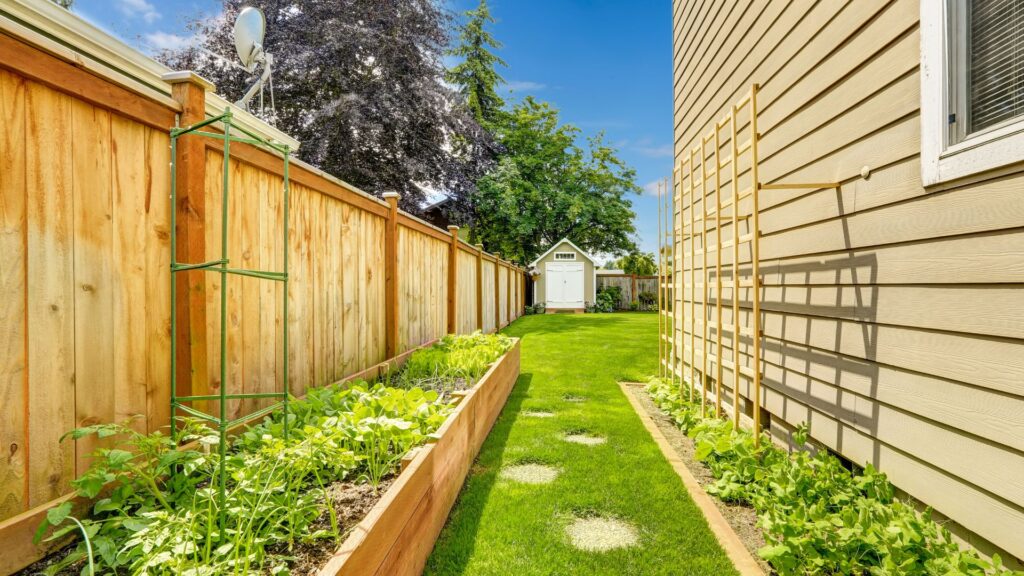
Is A Composite Fence Worth The Investment?
When considering a new fence for your property, there are many factors to weigh. One of the most popular choices for homeowners today is composite fencing, but is it truly worth the investment? Let’s break it down by looking at two crucial factors: durability vs. cost and the aesthetic value composite fencing can bring to your home.
Durability vs. Cost
One of the main concerns homeowners have when investing in a new fence is the balance between cost and durability. While composite fences tend to have a higher upfront cost compared to traditional wood or even vinyl fences, they offer significant long-term savings that make them a wise investment.
Composite fencing is known for its incredible durability. Unlike wood, which is susceptible to rotting, warping, and pest damage, composite materials are designed to withstand harsh weather conditions and resist damage over time. This means that once you install a composite fence, you won’t have to worry about the constant maintenance that wooden fences often require. There’s no need for regular painting, staining, or sealing, which can add up in terms of both time and money.
In the long run, the minimal maintenance costs make composite fencing a more cost-effective option. The initial investment may be higher, but the savings on repairs and upkeep over the years more than justify the expense. This is especially important for homeowners who plan to stay in their homes for an extended period. Additionally, composite fences often come with warranties, offering further peace of mind that your investment will stand the test of time.
Aesthetics and Design
Beyond the practical benefits, composite fences offer an array of aesthetic options that make them an attractive choice for homeowners looking to enhance the appearance of their property. Unlike traditional fences that may offer limited design flexibility, composite fencing comes in a wide range of colors, styles, and textures. Whether you want the natural look of wood without the hassle, or a sleek modern design to complement your home’s contemporary style, composite fences provide plenty of options.
The variety of design choices means that you can find a composite fence that perfectly matches your home’s exterior, enhancing its curb appeal and overall aesthetic value. Whether you’re aiming for a rustic look or a more polished, modern appearance, composite fencing offers the versatility to achieve your desired style without sacrificing durability.
In conclusion, composite fencing is absolutely worth the investment for homeowners who are looking for a balance between durability, low maintenance, and aesthetic flexibility. While the initial cost may be higher, the long-term savings on maintenance, coupled with the enhanced visual appeal, make composite fences a practical and beautiful choice for any property.

FAQs: About How Long Do composite Fences Last
How long do composite fences last?
Composite fences generally last between 25 to 30 years, depending on factors like material quality, proper installation, weather conditions, and maintenance. Some high-quality composite fences can last even longer with the right care.
Do composite fences require much maintenance?
No, composite fences are known for being low maintenance. They don’t require painting, staining, or sealing like wood fences. Basic cleaning with soap and water a couple of times a year is usually sufficient to keep them looking good.
Are composite fences more durable than wood fences?
Yes, composite fences are more durable than wood fences. They are resistant to rot, insect damage, and warping, all of which are common issues with wood. Composite fences can also handle harsh weather conditions better than wood fences.
Can composite fences be repaired if damaged?
Yes, minor damage to composite fences, such as scratches or dings, can often be repaired. In some cases, individual panels or boards may need to be replaced, which can be done without replacing the entire fence.
Do composite fences fade over time?
While composite fences are UV-resistant, they may experience some degree of fading over time due to prolonged sun exposure. However, the fading is usually minimal compared to wood, and most manufacturers provide fade-resistant warranties.
Are composite fences eco-friendly?
Yes, composite fences are considered eco-friendly because they are typically made from recycled materials, including recycled wood fibers and plastics. This reduces the need for new raw materials and helps in waste reduction.
How do composite fences compare to vinyl fences in terms of longevity?
Both composite and vinyl fences are long-lasting, with vinyl typically lasting 20-30 years and composite lasting around 25-30 years or more. However, composite fencing is generally more durable, offering better resistance to extreme weather conditions and impact damage.
Do composite fences resist mold and mildew?
Yes, composite fences are resistant to mold and mildew, especially compared to wood. However, in particularly damp or humid environments, occasional cleaning is recommended to prevent any buildup of dirt or organic material that could support mold growth.
Can I install a composite fence myself?
While composite fences can be installed as a DIY project, their weight and specific installation requirements make professional installation a better option for most homeowners. Proper installation is crucial to ensuring the fence’s longevity and stability.
What factors can shorten the lifespan of a composite fence?
Factors like improper installation, extreme weather conditions, poor maintenance, and constant physical damage can potentially shorten the lifespan of a composite fence. Ensuring regular cleaning, avoiding direct contact with moisture, and checking for minor damage can help extend its life.
Conclusion
In conclusion, composite fences offer homeowners a durable and low-maintenance fencing solution, with a lifespan that typically ranges from 25 to 30 years or more. Unlike traditional wood or vinyl fences, composite fences require minimal upkeep, making them a cost-effective option in the long term. By investing in a composite fence, homeowners can enjoy significant savings over time, as the need for frequent repairs and maintenance is greatly reduced. For those looking for a reliable and lasting fencing option, composite fences are an excellent choice that delivers both longevity and value.
About the Author:
Mike Veail is a recognized digital marketing expert with over 6 years of experience in helping tradespeople and small businesses thrive online. A former quantity surveyor, Mike combines deep industry knowledge with hands-on expertise in SEO and Google Ads. His marketing strategies are tailored to the specific needs of the trades sector, helping businesses increase visibility and generate more leads through proven, ethical methods.
Mike has successfully partnered with numerous companies, establishing a track record of delivering measurable results. His work has been featured across various platforms that showcase his expertise in lead generation and online marketing for the trades sector.
Learn more about Mike's experience and services at https://theleadguy.online or follow him on social media:

